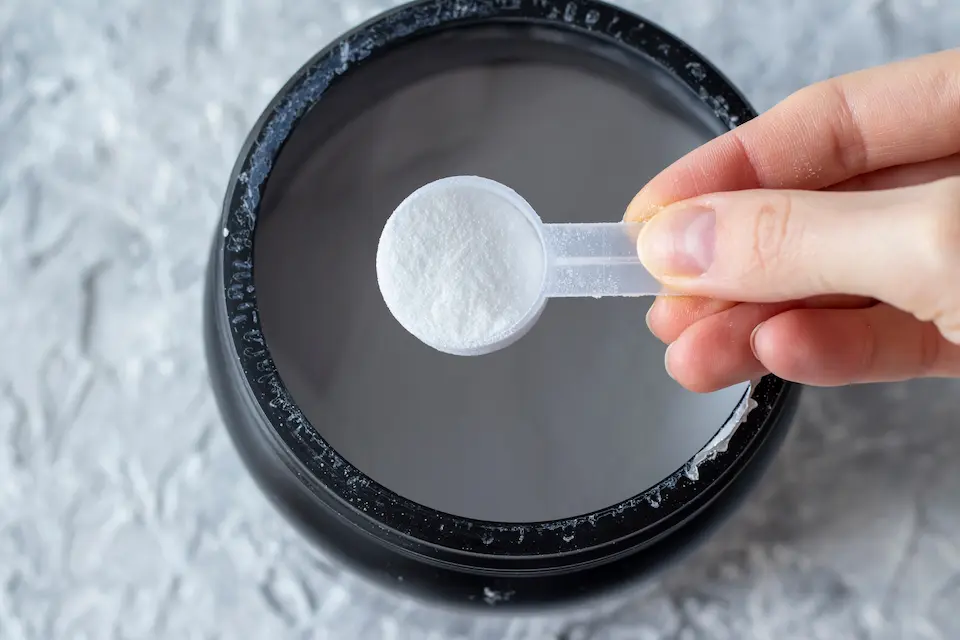Creatine has been a cornerstone of sports nutrition for decades, primarily recognized for its role in enhancing strength, power, and muscle growth. However, new research continues to expand our understanding of this powerhouse supplement. Scientists are now uncovering benefits that go beyond just performance in the weight room—ranging from improved recovery and injury prevention to cognitive and neurological advantages.
Whether you’re an elite athlete or a weekend warrior, the latest findings suggest that creatine supplementation offers a broad spectrum of benefits that can optimize both physical and mental performance. Below, we explore the newest discoveries on creatine and how they could enhance your athletic capabilities.
1. Enhanced Post-Exercise Recovery and Injury Prevention
One of the most exciting recent findings is creatine’s ability to aid in post-exercise recovery and injury prevention.
Faster Muscle Recovery
High-intensity training leads to muscle microtears, which cause inflammation and soreness. A 2024 study found that athletes who supplemented with creatine experienced significantly less muscle damage after strenuous workouts compared to those who didn’t. This was attributed to creatine’s role in promoting ATP (adenosine triphosphate) replenishment and reducing oxidative stress (Research Progress of Creatine Sports Nutrition Supplements).
Additionally, creatine helps restore glycogen levels post-exercise, which is crucial for energy recovery. The faster an athlete can replenish their glycogen stores, the quicker they can return to peak performance.
Reduced Injury Risk
Athletes engaging in explosive, high-impact movements—such as sprinting, jumping, and heavy lifting—are prone to muscle strains and ligament injuries. Studies suggest that creatine supplementation enhances muscle resilience by increasing intracellular hydration and reducing inflammation, making muscles more resistant to tears and overuse injuries (Creatine Supplements: What the Research Says).
For endurance athletes and those involved in contact sports, this could mean fewer setbacks due to injuries and a longer, more consistent training cycle.
2. Increased Endurance Performance
Creatine has traditionally been associated with anaerobic activities such as weightlifting and sprinting. However, recent findings indicate that it may also provide substantial benefits for endurance athletes.
Glycogen Resynthesis and Energy Efficiency
Studies have shown that creatine enhances glycogen storage in muscles, which is particularly beneficial for endurance athletes who rely on sustained energy output. By increasing glycogen availability, athletes can delay fatigue and maintain a higher level of performance during prolonged efforts like cycling, running, or triathlons (Research Progress of Creatine Sports Nutrition Supplements).
Buffering Muscle Acidosis
During endurance activities, muscles produce lactic acid, which leads to fatigue and reduced power output. Research suggests that creatine acts as a buffer against acidosis, helping athletes sustain higher intensities for longer durations. Cyclists and runners supplementing with creatine reported improved time-to-exhaustion in high-intensity trials (Creatine Supplementation Unveiled).
This challenges the traditional belief that creatine is only beneficial for short, explosive efforts—showing that even endurance athletes can reap its rewards.
3. Cognitive and Neurological Benefits
Creatine’s impact extends beyond physical performance—new research highlights its role in brain function and mental health, which is particularly beneficial for athletes who rely on quick decision-making and concentration.
Enhanced Cognitive Function
Athletes in fast-paced sports like basketball, soccer, and MMA require sharp cognitive processing and quick reaction times. Research has found that creatine supplementation helped reduce mental fatigue, improved memory recall, and enhanced problem-solving abilities under stress (From Gym to Medicine: Creatine Uses Beyond Athletic Performance).
This is especially important for athletes who experience cognitive decline during prolonged training sessions or competitions, where mental sharpness is just as crucial as physical endurance.
Mental Health and Stress Management
Beyond performance, creatine has shown promise in supporting mental health. Emerging research indicates that creatine supplementation may help manage anxiety and depression, conditions that can negatively impact athletic motivation and consistency (Creatine Supplementation Unveiled). Since physical and mental stress are interlinked, maintaining a balanced mental state can translate to better focus and resilience during training and competition.
4. Improved Bone and Joint Health
For athletes, strong bones and healthy joints are just as crucial as muscle strength. A 2023 review suggests that creatine plays a role in maintaining bone mineral density and preventing fractures, making it a valuable supplement for longevity in sports.
Bone Density and Strength
Bone health is often overlooked in athletic performance, but it is critical for preventing stress fractures and other injuries. Studies show that creatine enhances osteoblast activity (cells responsible for bone formation), leading to increased bone mineral density over time (Creatine Supplements: What the Research Says).
This is particularly important for aging athletes, female athletes at risk for osteoporosis, and individuals recovering from bone-related injuries.
Joint Protection and Inflammation Reduction
By reducing inflammation and oxidative stress, creatine may also contribute to joint health. Athletes with joint issues, such as runners or weightlifters dealing with knee pain, may benefit from creatine’s ability to reduce wear and tear on cartilage and connective tissues (From Gym to Medicine: Creatine Uses Beyond Athletic Performance).
5. Increased Muscle Mass and Strength Gains
While this is a well-established benefit, new research continues to reaffirm creatine’s effectiveness in promoting lean muscle mass and strength.
Enhanced Protein Synthesis and Muscle Growth
A systematic review confirms that creatine supplementation leads to significant improvements in muscle hypertrophy. When combined with resistance training, creatine increases protein synthesis and enhances muscle fiber growth, leading to greater gains over time (Creatine Supplementation Unveiled).
Intramuscular Water Retention and Anabolism
Creatine also helps retain water within muscle cells, which not only gives muscles a fuller appearance but also creates a more anabolic environment. This intracellular hydration can act as a protective mechanism against muscle breakdown, ensuring athletes retain their hard-earned muscle during periods of intense training or caloric deficits.
For bodybuilders, powerlifters, and strength athletes, this makes creatine an essential supplement for both bulking and cutting phases.
Conclusion
The latest research confirms that creatine is far more than just a muscle-building supplement. It offers benefits in:
- Post-exercise recovery and injury prevention
- Endurance performance enhancement
- Cognitive and neurological function
- Bone and joint health
- Muscle mass and strength gains
With an impeccable safety profile, creatine remains a must-have supplement for athletes at all levels. If you’re not already using it, now might be the time to start.





